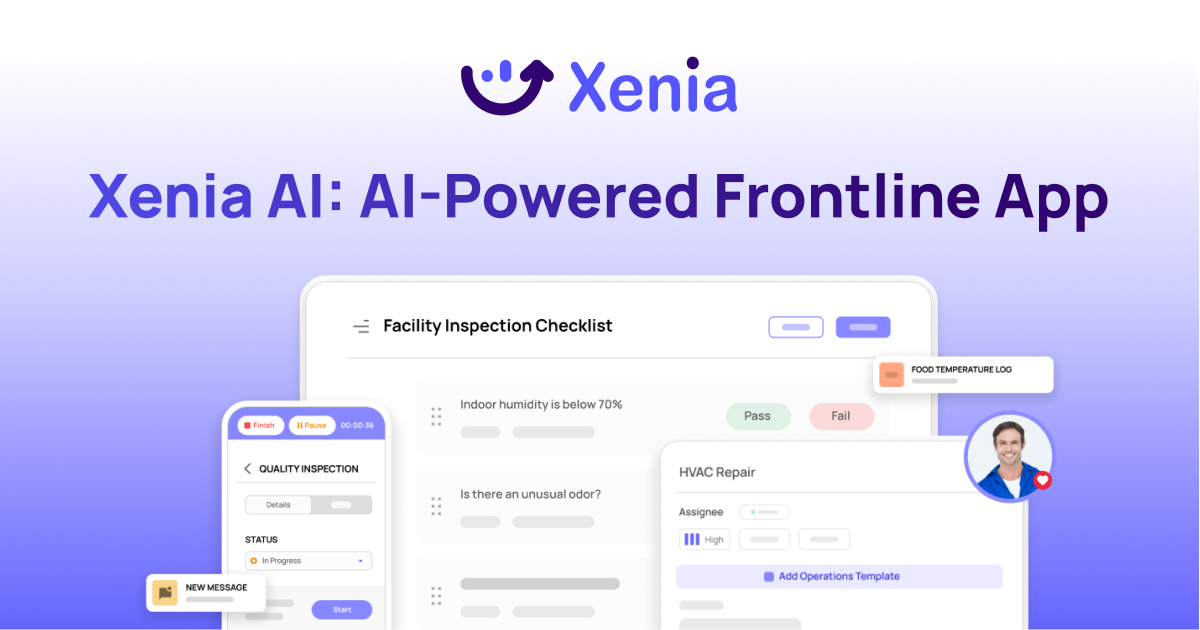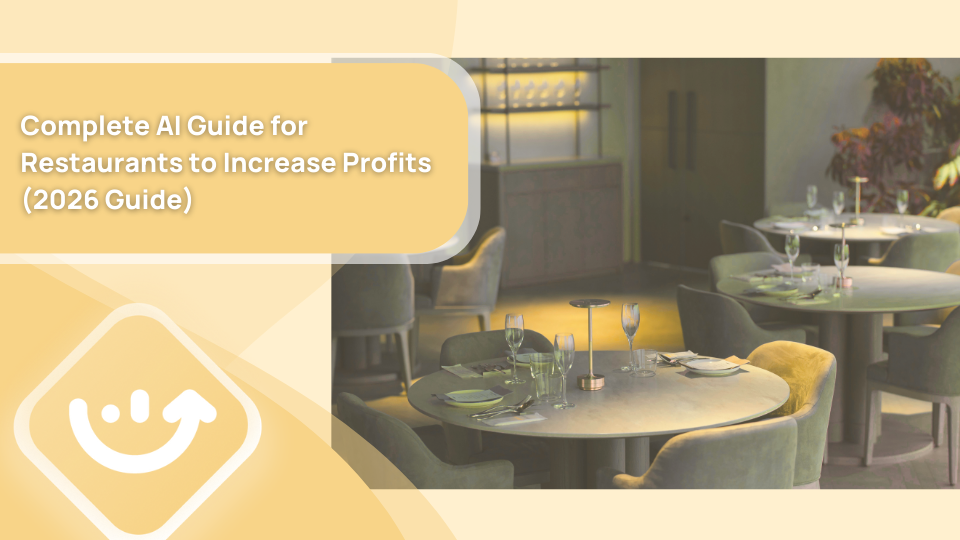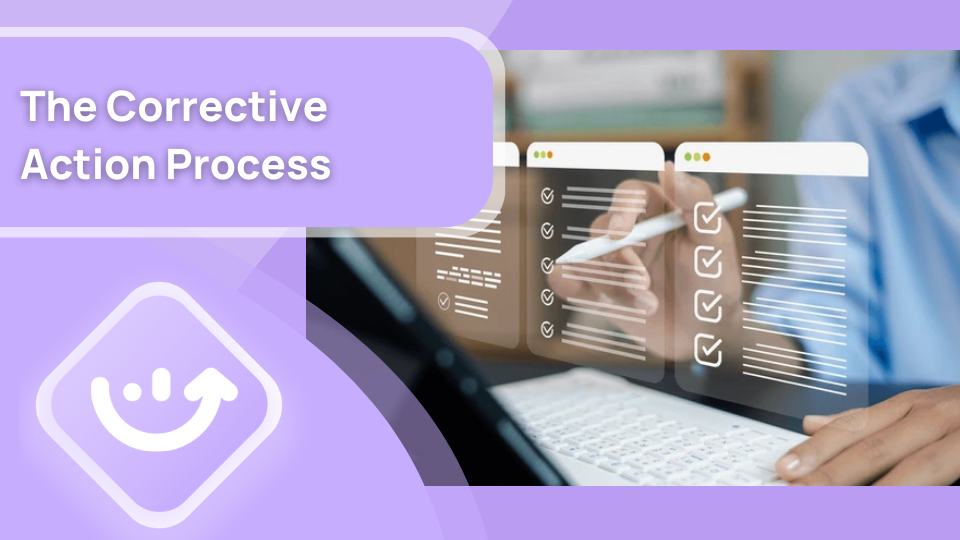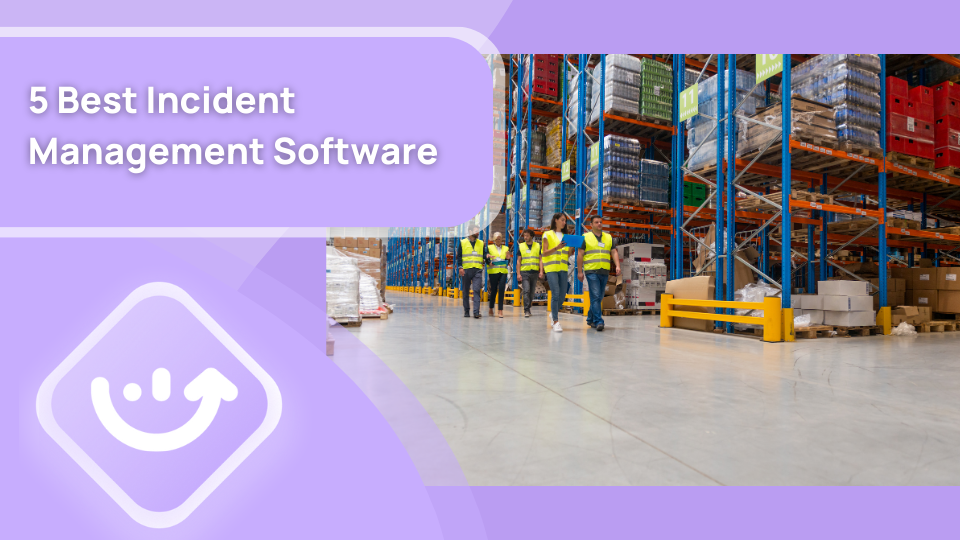Picture this: It's Friday night. You have got 200 reservations. Every table's packed. Kitchen's humming.
Then your phone buzzes: "Hey boss, really sorry but I can not come in tonight."
Your stomach drops.
Now you are calling everyone. Checking if you have got enough food. Wondering if you overstaffed Tuesday when nobody showed up.
Meanwhile, that restaurant down the street? They are handling the same chaos without breaking a sweat.
Their secret? They are using AI for restaurants.
But here's the thing, they are not using it to replace people. They are using it to eliminate the guesswork and busywork that reduces profits and burns out teams.
In this guide, we will discuss exactly how managers are using ai for restaurant FOH operations efficiency and which ai tools for restaurants actually work.
.svg)

Priced on per user or per location basis
Available on iOS, Android and Web
What Does AI for Restaurants Actually Mean?
Think about your best general manager.
The one who just knows when to schedule extra servers. Who can predict when you will run out of salmon. Who catches problems before they explode.
AI does that same thing. Except it does it for all your locations at once.
It's not magic. It's just pattern recognition at scale.
Why You Need AI in Restaurant Management?(Even If You Think You Don't)
You have been running restaurants without AI for years.
But here's what's changed:
Your gut does not scale. You know your flagship location inside and out. But location five? Location ten? You can not be everywhere.
Manual processes are slowing you down. Paper checklists get signed without actually checking. Temperature logs get filled in from memory. Equipment breaks because nobody tracked maintenance.
Labor costs are out of control. When labor hits 30-35% of revenue, you can not afford to guess on scheduling anymore.
Food waste is literally money in the trash. Most restaurants waste 4-10% of food. That's pure profit going straight to the dumpster.
One health code violation costs thousands. Not just in fines. In reputation. In lost revenue when you get shut down.
The restaurants winning right now are not working harder. They are working smarter by utilizing ai tools for restaurant management.
Here's What AI for Restaurant Operations Looks Like
AI for restaurant management handles three critical things:
1. It Reduces the Busywork
Your managers should not spend three hours building schedules.
They should not chase people to finish opening checklists.
They should not compile reports manually.
AI does this stuff automatically. Your team focuses on what actually matters: coaching staff and making customers happy.
2. It Sees Problems Before They Cost You Money
This is the big one.
Equipment about to fail? AI catches it before it dies during dinner rush.
Food safety risk? You get alerted before the health inspector shows up.
Inventory running low? You know before you 86 half your menu on Saturday night.
Running understaffed? The system warns you three days in advance.
3. It Makes Every Location Perform Like Your Best Location
Your downtown spot and suburban location should feel the same to customers.
AI makes this happen by standardizing processes and showing you exactly how each location performs.
5 Ways Multi-Location Use AI for Restaurant Operations Efficiency
If you are running multiple spots, these matter most:
1. Keeping Brand Standards Consistent
The problem: Your 5th location does not execute like your 1st.
How AI fixes it: Photo verification for everything. Planograms. Food presentation. Cleaning procedures. Equipment maintenance.
Digital checklists that require photos create objective proof. No more "yeah, we did it."
Result: 40-60% better consistency across locations.
2. Seeing Everything Without Being Everywhere
The problem: District managers can not be in ten places at once.
How AI fixes it: Real-time dashboards that show:
- What's done vs what's pending at every location
- Which stores are crushing it and which need help
- Equipment issues before they become emergencies
- Performance comparisons between stores
Result: You know what's happening everywhere without making a single phone call.
3. Fixing Equipment Before It Breaks
The problem: Your walk-in dies on Saturday. You lose $8000 in food and pay $5000 for emergency repairs.
How AI fixes it: Continuous monitoring of refrigeration temps, equipment performance and usage patterns.
The system predicts when something's about to fail. You schedule a $200 service call instead of a $13000 disaster.
Result: 40-60% fewer emergency repairs.
4. Never Failing Another Health Inspection
The problem: Manual temp logs get missed. You fail inspections. You get shut down.
How AI fixes it:
Automatic temperature logging. Instant alerts when temps drift. Audit-ready reports generated automatically. Corrective actions tracked to completion.
Result: 80% reduction in temperature violations.
5. Making Sure Nothing Falls Through the Cracks
The problem: Tasks do not get done. Nobody knows who was responsible. You find out too late.
How AI fixes it: Smart scheduling based on what actually happens at your restaurants. Auto-assignment to the right person. Photo-verified completion. Real-time visibility.
Result: 90%+ task completion vs 60-70% with paper checklists.
And for this, AI tools for restaurant chains matter a lot. More than ever. Let's now compare top 5 restaurant AI software platforms.
The Best AI Tools for Restaurants Right Now
**
Platform, Focus, Best For, Key Feature
Xenia, Complete operations, Multi-unit operators, Predictive scheduling - pattern recognition
SevenRooms, Guest experience, Full-service, Feedback analysis - table optimization
Toast, POS & payments, All types, Menu performance analytics
MarketMan, Inventory, Food cost control, Demand forecasting
7shifts, Labor, Labor optimization, Demand-based scheduling
**
1. Xenia: Cloud-Based AI Platform for Restaurants

What it does: Complete operations platform that learns from your data.
Xenia provides ai-driven solutions for efficient restaurant operations.
Xenia figures out when tasks should happen based on your patterns. If deep cleaning works best after slow Monday shifts, it automatically schedules it that way for all locations.
When three stores report the same equipment issue, it flags it as a systemic problem.
Instead of manually building inspection reports, it generates audit-ready documentation automatically.
Key features:
- AI photo analysis that verifies task completion and catches issues
- Predictive maintenance alerts before equipment fails
- Real-time dashboards showing performance across all locations
- Mobile-first design for managers and frontline teams
- Automatic scheduling based on your actual patterns
- One-click audit reports for health inspections
Best for: Multi-location operators who need everything in one place. Especially powerful if you have got 5+ locations.
Real results:
- Demos Restaurants improved consistency while cutting manager admin time
- Shucking Good Hospitality got audit-ready across all locations
- Prince Street Pizza scaled without sacrificing quality
2. SevenRooms

What it does: Manages reservations, optimizes table seating, builds guest profiles.
Best for: Full-service restaurants focused on repeat customers and direct bookings.
3. Toast

What it does: Handles payments, online ordering and provides sales insights to optimize your menu.
Best for: Restaurants needing a unified system with built-in analytics.
4. MarketMan

What it does: Predicts what you'll need so you order the right amount and cut waste.
Best for: Restaurants serious about controlling food costs.
5. 7shifts
.webp)
What it does: Creates schedules that match actual demand and control labor costs.
Best for: Restaurants looking to optimize labor without sacrificing service.
How to Actually Start Using AI for Restaurants
Step 1: Pick ONE Thing
Do not try to fix everything at once.
Start with your biggest pain point:
- Food waste? → Start with AI inventory
- Labor costs out of control? → Try AI scheduling
- Customers waiting forever for responses? → Add a chatbot
- Inconsistent execution? → Digital checklists with photo verification
- Failed inspections? → AI compliance tracking
Step 2: Start Small
- For marketing: Use ChatGPT to draft social posts (it's free)
- For customer service: Add a simple chatbot to your website
- For scheduling: Test AI scheduling at one location first
- For inventory: Start with your highest-waste items
- For operations: Roll out digital checklists at 1-3 locations
Step 3: Make It Easy for Your Team
Show them how it makes their lives easier. Give them quick reference guides. Celebrate wins. Address concerns directly.
The easier the tool is to use, the faster adoption happens. AI-powered restaurant tools like Xenia cut training time in half.
Step 4: Actually Measure Results
Track before and after:
- Food waste percentage
- Labor cost percentage
- Customer response times
- Satisfaction scores
- Time saved on admin
- Task completion rates
- Compliance scores
Step 5: Expand What Works
Once you prove ROI in one area, roll it out to more locations and add more features.
FAQs
What is restaurant AI software?
It's software that uses artificial intelligence to handle operations like scheduling, audits, food safety and maintenance. Instead of tracking everything manually, platforms like Xenia put it all in one place.
How does restaurant AI software actually increase profits?
By cutting waste, controlling labor, preventing breakdowns and improving execution. You catch issues early instead of paying for disasters.
Do I need to be a huge chain to use this?
Nope. Single locations and multi-unit chains both benefit. Many start small with digital checklists then scale up. And you can always start with cost-effective ai solutions for restaurants as mentioned above.
Why do multi-location restaurants choose all-in-one systems?
Consistency. One system for tasks, audits, equipment and compliance means nothing slips through the cracks. Real-time visibility without endless follow-ups.
Conclusion
AI for restaurants helps you cut waste, control labor, prevent breakdowns and keep standards consistent everywhere.
Pick one problem. Solve it. Measure results. Scale what works.
For multi-location restaurants, all-in-one platforms like Xenia make it simple to manage tasks, audits, compliance and equipment in one place.
AI is not the future anymore.
It's how the best operators run their restaurants today.
Frequently Asked Questions
Got a question? Find our FAQs here. If your question hasn't been answered here, contact us.

Looks like there's no data available in our FAQ section at the moment.

.svg)
.webp)
%201%20(1).webp)





.webp)

.svg)
%201%20(2).webp)


.png)







